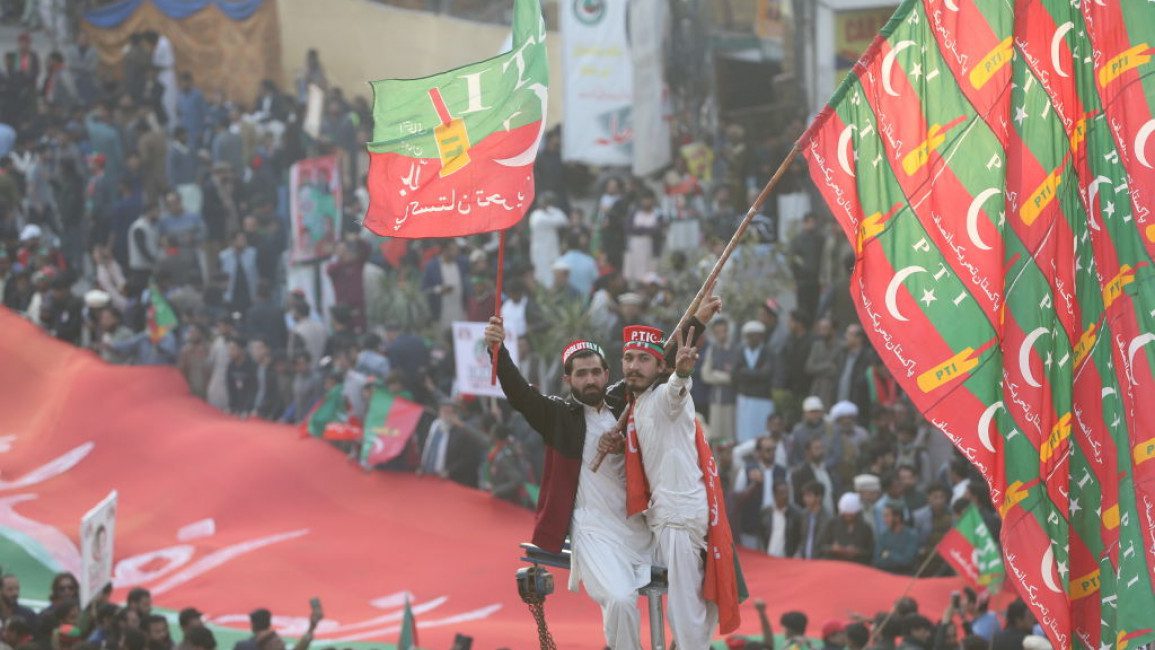World
Prime Minister Khan declares that his party would stop participating in all assemblies

Imran Khan, a former prime minister of Pakistan, made his first public appearance since being injured in a shooting earlier this month and announced on Saturday that his party will no longer participate in the nation’s regional and national legislatures.
Khan, a former cricket player who became a politician, was defeated in a no-confidence motion in April. He is currently in the opposition and has been calling for early elections, saying that the Prime Minister Shahbaz Sharif staged his removal with the assistance of the American administration.
The charges have been rejected by Sharif and Washington, and according to the current administration, the upcoming elections will go place in 2023 as scheduled.
In an effort to support early voting, Khan organized a protest march late last month from the eastern city of Lahore into Islamabad. However, after being shot by a gunman who opened fire on his car, Khan decided not to personally lead the convoy. In the incident, one of Khan’s followers was murdered and 13 others were injured. The shooter was detained.
Khan re-joined the protest march on Saturday night in the city of Rawalpindi, which is close to Islamabad.
Tens of thousands of his applauding fans heard him declare that his Tehreek-e-Insaf party was leaving all regional and national assemblies and exiting this “corrupt system” altogether.
Prior to a vote to choose a new prime minister, his party abruptly resigned from the national legislature in April; however, the majority of the resignations have not yet been recognized. Khan’s base is in the Khyber Pakhtunkhwa province in the northwest, and abandoning the Punjab parliament would give his adversaries the reins of power.
The politician spoke for more than an hour, mentioning the Sufi mystic Rumi, the dissolution of the Soviet Union, and the Shiite leader Imam Hussain of the seventh century.
He reversed course on his call for immediate elections at the conclusion of his address, asserting that his party would triumph in the nine-month contest. He also said that he would stop marching on the capital.
Khan said that the government was unable to handle a march in Islamabad. “They (the government) cannot stop the hundreds of thousands from approaching Islamabad,” Khan remarked.
“We may have induced a circumstance similar to Sri Lanka.
Because I don’t want there to be chaos in the nation, I have chosen not to march on Islamabad. I don’t want to hurt our nation in any way.”
The time of the exit would be announced during his meeting with his senior ministers and parliamentary party, he claimed.
The demonstration was held a few days after Asim Munir, a new army commander, was named. Munir previously served as the nation’s espionage head while Khan was prime minister but was ousted without cause.
Gen. Qamar Javed Bajwa, who Khan has also charged with being involved in his removal, is replaced by Munir. Bajwa disputes the charge.
Bilawal Bhutto Zardari, the foreign minister of Pakistan, called Khan’s gathering on Saturday night a “facesaving flopshow.”
In a tweet, he stated: “Frustrated, resorts to resignation theatrics. Unable to gather revolution masses. Failed at undermining appointments of new heads.”
